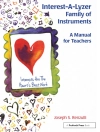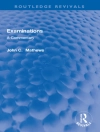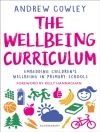This is a book about the struggle of many New Zealand families to have their children with learning disabilities included in local community schools. It reviews the influences in the post war period that shaped the state response to the right of all children to attend school. Reflections from both education policy makers and parents of that time are included. The book also examines the more recent impact of neoliberal politics on education policy and the consequences experienced by families with school-aged children with disabilities who may well become ‘collateral damage in the enterprise of improving schools.’
After examining the families’ experience the book asks how inclusion can be fostered in schools and classrooms? Practitioners and academics present research findings that indicate alternative ways of thinking and acting that attest to more ethical and humane responses to human difference. Citizens, school personnel, politicians and policy makers should be challenged by the tales from school arising from attempts to achieve a ‘world class, inclusive education system.’
Cover photograph by Rod Wills, “Oratia District School”
Tabela de Conteúdo
Acknowledgements; Introduction: Conversations and Concerns of Tales from School; Understandings for Today; Legitimating Exclusion: Compulsory Education, the Standards and the Experts; Parents, Professionals and Schooling; Special Education and the Changing Role of the State 1984-1989; Thinking about Our Children; Reforming Special Education at the Local School: Getting Ideas about Difference Sorted out; Section 10 Appeals: A Safety Net or a Holey Promise? Parents Reflect on the Appeal Process The Problematics of Inclusive Education in New Zealand Today Limiting the Definition and the Discourse: How ERO Limits Inclusion; Parent Struggles with Education and the School System; Is Anyone Listening?; Parent-School Relationships and Exclusion from and within School; Parents of Disabled Children Talk about Their Experiences after Special Education 2000; How ‘Specialese’ Maintains Dual Education Systems in Aotearoa, New Zealand; Pushing the Stone up the Hill; Resisting Neoliberalism; Relational and Culturally Responsive, Indigenous Approach to Belonging and Inclusion; Flying under the Radar: Democratic Approaches to Teaching in Neoliberal Times; Tales from the Market: Students with Learning Disability – Transition from School; Questions of Value(s): Neoliberal Education Reforms from the Perspectives of Disabled Students and Teacher Aides; Inclusion, Disability and Culture: The Nexus of Potential and Opportunity for Policy Development; The Struggle for Inclusion in Aotearoa; Contributors; Index.












